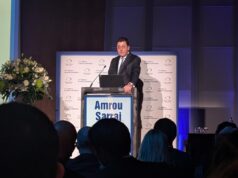 Artedrone, a Truffle Capital medtech portfolio company, has today announced the successful completion of a set of various in vitro and animal studies demonstrating the ability of its Sasha microrobotic solution to autonomously perform mechanical thrombectomies in stroke treatment. Results from the study are being submitted for publication in a research journal, an Artedrone press release notes.
Artedrone, a Truffle Capital medtech portfolio company, has today announced the successful completion of a set of various in vitro and animal studies demonstrating the ability of its Sasha microrobotic solution to autonomously perform mechanical thrombectomies in stroke treatment. Results from the study are being submitted for publication in a research journal, an Artedrone press release notes.
“Mechanical thrombectomy is by far the most efficient treatment for large vessel stroke but is currently highly underused due to the fact that it is often only performed at specialised stroke centres, which denies life-saving treatment access to millions of patients,” said Frédéric Clarençon (Pitié Salpêtrière Hospital, Paris, France), a principal investigator on the study. “We’re encouraged by these preclinical results and will be conducting additional studies to advance Sasha as a means to expand access to mechanical thrombectomy for stroke patients around the world.”
Artedrone’s recent release goes on to detail that the preclinical programme for Sasha is evaluating mechanical thrombectomy performance in a variety of settings—including in vitro and in vivo porcine cerebral anatomies, as well as in vitro human cerebral vasculature. In each of the previous models, pre- and post-procedure vessel perfusion was analysed to confirm the effectiveness of the microrobot design. Most notably, Artedrone claims, the latest successful preclinical milestone examined both biological analogue clot and native clot retrieval from in vivo porcine cerebral anatomy.
“Despite the severe burden of large vessel strokes globally, there is limited access to life-saving treatments for patients,” said Liane Teplitsky, chief executive officer (CEO) of Artedrone. “These results bring us one step closer to our goal of bringing cutting-edge technology to market that will democratise complex stroke interventions, which will dramatically change the treatment landscape.”
According to Artedrone, while there are few neurovascular centres able to perform thrombectomies, there are far more cardiology centres able to perform vascular interventions, and the company’s Sasha technology—which is based on magnetic autonomous microrobots—will allow cardiologists and radiologists to conduct these procedures.
Artedrone recently announced Teplitsky as its CEO, in addition to appointing Nnamdi Njoku and Dan Raffi to its board of directors.










